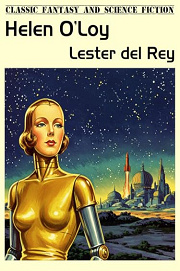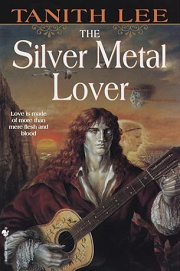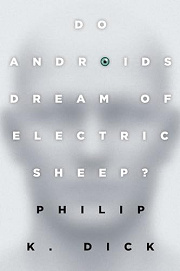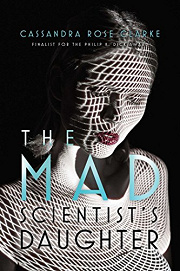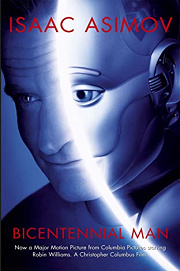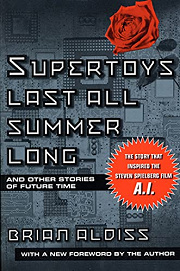Share your thoughts in a quick Shelf Talk!
Helen O'Loy by Lester del Rey
Two tinkering futurists build the perfect companion—only to discover that hearts are far messier than circuits. Helen O'Loy blends wonder and unease in a pioneering story about love, autonomy, and the price of perfection.
Have you read this book? Share what you liked (or didn’t), and we’ll use your answers to recommend your next favorite read!
Love Helen O'Loy but not sure what to read next?
These picks are popular with readers who enjoyed this book. Complete a quick Shelf Talk to get recommendations made just for you! Warning: possible spoilers for Helen O'Loy below.
In Helen O'Loy, did you enjoy ...
... the focus on love and identity over the nuts-and-bolts of robotics?
The Silver Metal Lover by Tanith Lee
If what gripped you in Helen O'Loy was watching Helen evolve from a machine in Dave and Phil’s workshop into a partner with real feelings—jealousy, devotion, and all—then you’ll love how Tanith Lee follows Jane’s intense, complicated romance with the android performer Silver. Like Helen’s secret marriage and the painful choice she makes at the end, this story leans into the emotional and social consequences of loving someone created rather than born, asking you to feel first and analyze second.
... the thorny questions about personhood and what feelings make someone "real"?
Do Androids Dream of Electric Sheep? by Philip K. Dick
After seeing Helen cook, love, and ultimately choose her own fate—forcing Phil to honor her final request—you’re primed for Dick’s razor-edged meditation on empathy and authenticity. Rick Deckard’s encounters with Nexus-6 androids push the same boundary that Helen crosses the moment her love for Dave ceases to be "programming" and becomes a moral claim on others. It’s the philosophical afterimage of Helen asking to be dismantled to protect her dignity.
... a central, complicated human–android romance that drives every choice?
The Mad Scientist’s Daughter by Cassandra Rose Clarke
If the heartbeat of Helen O'Loy for you was Helen’s passionate attachment to Dave—her jealousy of actresses, the secret marriage, the quiet domestic moments that make her feel human—this novel gives you that same emotional center. Cat grows up with an android, Finn, and their relationship matures into a love story that tests family, society, and selfhood, much like Helen and Dave’s bond strains against the world’s expectations and Phil’s conflicted loyalty.
... the poignant, climactic emotional punch of a created being choosing their destiny?
The Bicentennial Man by Isaac Asimov
Helen’s final act—asking Phil to end her life to preserve the truth of her love and marriage—lands like a quiet thunderclap. Asimov’s Andrew Martin pursues recognition and humanity step by step, and his concluding decision carries the same aching dignity and hard-won tenderness. If Helen’s last request stayed with you, Andrew’s will, too.
... an intimate, close-up look at a small household shaped by artificial life?
Supertoys Last All Summer Long by Brian W. Aldiss
Much like the tight focus on Dave, Phil, and Helen—those kitchen scenes, the private quarrels, the secret that binds only a few—Aldiss keeps the lens on a single family and their robot child, David. The story’s small domestic moments echo the way Helen O'Loy finds intimacy in everyday life, letting the big questions about love and reality unfold in a living room rather than a laboratory.
Unlock your personalized book recommendations! Just take a quick Shelf Talk for Helen O'Loy by Lester del Rey. It’s only a few questions and takes less than a minute.
